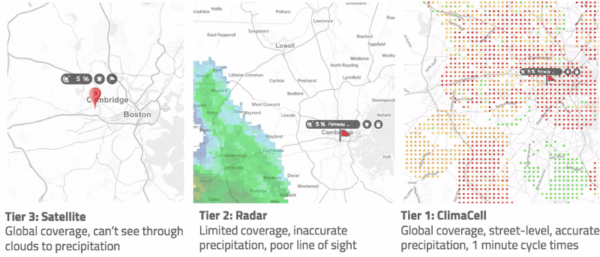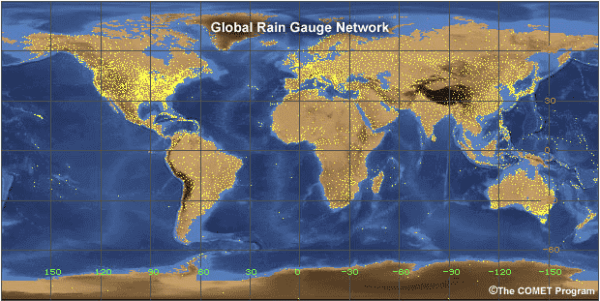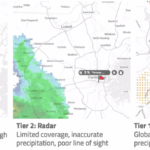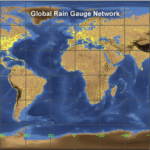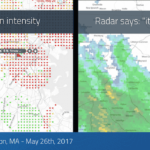As the world went into lockdown in early 2020, demand for goods spiked and ecommerce thrived. The stay-at-home message and shutting of in-person shopping during what has been termed The COVID Economy meant consumers often had no choice but to order items online.
As we adapt to “the new normal”, this trend is expected to continue throughout the rest of 2021. With the rise in digitization and ecommerce shipments, companies are looking for a faster and more efficient way to ship goods to consumers, which is good news for intermodal. In fact, the Intermodal Freight Transportation Market is expected to grow 8.27% from 2021 to 2026.
One of the main benefits of using intermodal to transport freight –– along with cost and reliability –– is efficiency; intermodal uses the best attributes of each mode of transport.
Yet the rise in demand for ecommerce goods and the soaring customer expectations when it comes to delivery options –– especially same-day deliveries –– puts intermodal operators under greater pressure to ship smaller volumes on short notice.
This requires particularly agile operations all along the delivery network, which poses a challenge when there are still many areas of inefficiency and inflexibility when transporting freight.
Read on to find out how you can increase intermodal efficiency, improve reliability, boost customer satisfaction, and take advantage of growth in the market.
Identify Bottlenecks to Ease Congestion
Bottlenecks are more of an issue for intermodal shipments than unimode shipments due to the complexity of having to coordinate multiple different modes of transport. These bottlenecks, which lead to congestion, queue formation, and delays, are often caused by:
- Lack of infrastructure
- Regulations
- Supply chain dysfunctions
- Weather disruptions
- Construction
- Accidents
- A shift in demand
When companies try to ease these bottlenecks, they often just move the issue to another part of the transportation network, and the overall effect and transit time remains the same. That’s why it’s important to look at the entire intermodal shipment path rather than considering bottlenecks in isolation
To identify and ease bottlenecks, it’s important to:
- Invest in infrastructure
- Work with governments and authorities to iron out issues with regulations
- Adopt common information and communication standards along the entire supply chain
Find Ways to Overcome Truck Driver Shortages
Trucking is a crucial cog in the intermodal wheel. In fact, almost $700 billion of goods are transported by truck every year and more than 70% of all freight moved in the United States is done by trucks. Without the trucking industry, goods would not be able to be transported from ports, rail yards, and airports to their final destination.
Yet, the ongoing truck driver shortage is causing operational efficiencies, with trucking companies either being forced to delay shipments or pay higher prices to ensure their goods are delivered on schedule. If nothing is done to resolve the issue, there could be a shortage of 330,000 drivers by 2024.
In order to overcome the shortage of truck drivers and ensure there are enough trucks on the road to run efficient intermodal operations, it’s important to work with truck operators to attract and recruit a more diverse field of candidates.
To do that, consider how to:
- Improve the drivability of trucks
- Make the lifestyle more attractive
- Offer incentives to help overcome any downsides when driving long distances.
Become a Data-Driven Organization
Intermodal shipping has a long and complex supply chain, which can lead to inefficiencies when it comes to data collection and sharing. To improve intermodal efficiency and ensure a smooth shipping process, you need to collect and centralize data regarding:
- Performance of intermodal modes
- Shipment status
- Time of arrival
- Weather
- Route performance
- Customer preferences and feedback
Becoming a data-driven organization requires collaboration from every company involved in the supply chain and the sharing of important data across all parties. If intermodal shippers can collect, centralize and analyze this data, they will then be able to get the real-time visibility they need to efficiently track shipments and keep customers up-to-date every step of the way.
Harnessing the power of your data makes it easier to make informed decisions on the fly, optimize your transport management system and route planning, and meet customer demand and expectations.
Select Transport Providers Wisely
Managing multiple modes of transport can be a budgeting nightmare. While it might be tempting to choose the transport provider with the lowest rate, this can be a false economy. If they lack reliability, have poor customer service, or fail to communicate properly, then your shipment efficiency could take a hit.
You need transport providers who communicate with you to keep you updated every step of the way –– especially when the shipment hits speed bumps and is going to be delayed. If they proactively try to resolve the issue, even better.
When choosing a transport provider, here are some factors to consider
- Commitment to sustainability and green practices
- Whether they own intermodal assets or contract these from a third-party
- Their current client base
- Demonstration of continuous improvements and optimization
Gain a Better Understanding of the Weather
Weather events have a huge impact on intermodal transportation:
- Weather is responsible for almost 25% of all truck delays and costs the trucking industry up to $3.5 billion a year
- A weather-related derailment can cost anywhere from $1 million up to $30 million
- One of the major contributing factors to Trans-Pacific and Asia-North America West Coast schedule reliability falling below 40% in 2019 was the uncontrollable force of the weather
Monitoring weather forecasts and receiving alerts for weather events will only get you so far. Having access to weather data without knowing how it’s influencing your shipment isn’t enough.
You have to decide what to do with weather data and you need to see the overall picture to understand what action you should take, which can be far more complex than rerouting or halting operations.
This means being able to bring all your data together so you can get the necessary insight to make the best possible decisions and take decisive action; this requires weather intelligence. Automated predictive weather insights can help improve efficiency along the entire intermodal supply chain, as well as reducing unnecessary costs, and providing new revenue streams.
If you’re looking to improve your intermodal operational efficiency, Tomorrow.io’s predictive weather intelligence platform offers the insight you need to improve your decision making.
Get a demo of Tomorrow.io today.

